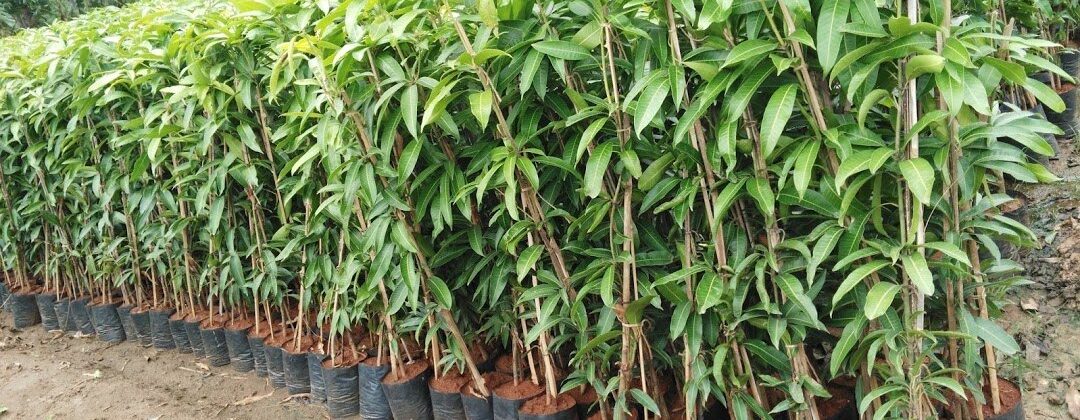
At Renaissance Agriculture and Seed Production Consult (RASPC), we are deeply committed to promoting environmental sustainability through the mass production of indigenous and grafted tree seedlings. This initiative serves both commercial and corporate social responsibility (CSR) objectives, as we seek to address deforestation, enhance biodiversity, and support sustainable agricultural practices. Our tree seedling establishment program is designed to provide high-quality, healthy seedlings that meet the diverse needs of farmers, businesses, and communities looking to contribute to environmental conservation.
Indigenous Tree Seedlings
Indigenous trees play a vital role in maintaining the ecological balance of our landscapes. By focusing on the mass production of indigenous tree seedlings, we help restore local ecosystems, preserve biodiversity, and support soil fertility. Our indigenous tree seedlings are grown from native species that are well-suited to the local climate, soil conditions, and ecosystems. These trees provide multiple benefits, such as:
- Biodiversity Conservation: Indigenous trees are essential for maintaining the natural habitat of local wildlife, ensuring that ecosystems remain healthy and balanced.
- Soil Health and Erosion Control: Many indigenous trees are naturally resistant to soil erosion, improving soil stability and preventing the degradation of agricultural land.
- Water Conservation: These trees help maintain the water cycle, promoting water infiltration and reducing the risk of floods and droughts in the surrounding areas.
Some of the indigenous tree species we focus on include Moringa, Baobab, Cedar, Mahogany, and African Blackwood. These species are chosen for their adaptability, growth potential, and ability to thrive in a variety of environments.
Grafted Tree Seedlings
In addition to indigenous trees, we also specialize in the production of grafted fruit tree seedlings. Grafting combines the best qualities of different tree varieties to produce superior fruit-bearing trees that are more productive, disease-resistant, and adaptable to varying conditions. Grafted trees have the added advantage of providing early and higher yields, making them ideal for both commercial farming and CSR initiatives. Some of the key benefits of grafted tree seedlings include:
- Improved Productivity: Grafted trees produce higher-quality fruit with increased yields, allowing farmers and businesses to maximize their returns.
- Disease Resistance: Grafted varieties are selected for their resistance to common diseases and pests, ensuring better survival rates and longevity of the trees.
- Faster Maturation: Grafted trees tend to mature more quickly, enabling farmers to harvest fruit earlier, which can lead to faster financial returns.
Our grafted tree seedlings include popular fruit varieties such as Mango, Citrus, Papaya, Avocado, and Guava, all chosen for their commercial viability and market demand.
Commercial and CSR Applications
The tree seedling establishment program is a dual-purpose initiative that not only meets commercial demands but also supports CSR goals.
Commercial Use:
- Agricultural Integration: Farmers can integrate grafted fruit trees and indigenous trees into their farms, diversifying their production systems, improving land use, and enhancing overall productivity.
- Timber and Non-Timber Products: Indigenous trees such as Cedar and Mahogany provide long-term investment opportunities through timber production, while others like Baobab and Moringa offer non-timber benefits, such as medicinal uses, fruit harvesting, and sustainable agroforestry.
- Forestry and Agroforestry Ventures: Both indigenous and grafted trees can be part of larger commercial forestry or agroforestry projects, providing timber, fruits, nuts, and other products.
Corporate Social Responsibility (CSR):
- Environmental Restoration: Many companies and organizations use tree planting initiatives as part of their CSR strategies. By producing high-quality tree seedlings, Renaissance Agriculture supports businesses in their efforts to offset carbon emissions, restore degraded landscapes, and contribute to reforestation projects.
- Community Empowerment: Our tree seedlings are also used in community development programs, where local communities are encouraged to plant trees on communal lands, schools, and public spaces to combat environmental degradation.
- Sustainability Education: Through partnerships with schools, NGOs, and local governments, we promote tree planting as a sustainable practice, encouraging the next generation to actively participate in conservation efforts.
Quality Assurance and Sustainability
At Renaissance Agriculture, we prioritize the quality and health of our tree seedlings. All seedlings are grown in optimal conditions, nurtured with the best practices in seedling production, and tested for resilience to ensure they can thrive in real-world conditions. Our production process involves:
- Seedling Nursery Management: We maintain a state-of-the-art nursery where all seedlings are carefully tended to, ensuring strong root development and healthy growth.
- Environmentally Friendly Practices: We adhere to sustainable agricultural practices, minimizing the use of chemical fertilizers and pesticides, and promoting organic farming methods wherever possible.
- Partnerships for Impact: We work with various stakeholders, including local governments, environmental NGOs, and private enterprises, to ensure our tree seedling production meets the needs of both local and global sustainability goals.
Through our Tree Seedling Establishment program, Renaissance Agriculture is contributing to the creation of a greener, more sustainable future. By providing quality indigenous and grafted tree seedlings, we empower farmers, businesses, and communities to take proactive steps in environmental conservation, climate change mitigation, and biodiversity preservation. This initiative aligns with our broader mission of supporting sustainable agricultural systems while fostering long-term ecological and economic resilience.
